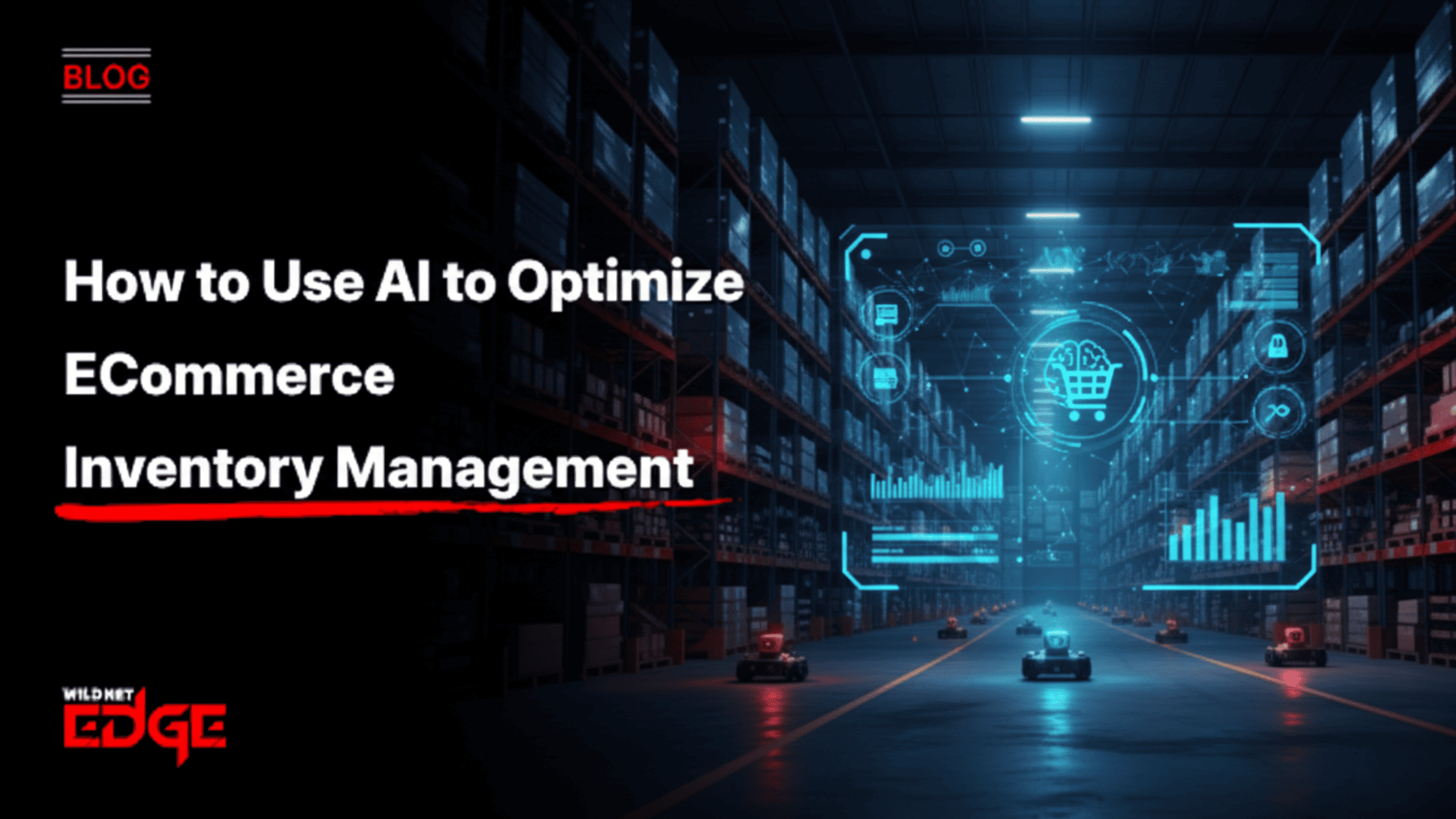For many businesses, maintaining accuracy in financial management feels like an uphill battle. Do you often experience discrepancies in your financial records? If so, you’re not alone. Many companies struggle with inaccuracies that can arise from manual processes or outdated systems. This is where accounting software development steps in as a viable solution. By streamlining operations and minimizing human error, the right software can help ensure accuracy in every transaction, simplifying your financial management and freeing up valuable time for more strategic tasks.
Importance of Financial Management Software
In today’s fast-paced business environment, effective financial management is critical for survival and growth. The core of financial management involves tracking income and expenses, ensuring compliance with regulations, and preparing for future financial needs. Accounting software development plays a pivotal role in this area by offering solutions that improve the overall management of financial processes.
Streamlining Financial Processes
One of the most significant advantages of robust accounting software is its ability to automate repetitive tasks, significantly enhancing accuracy and efficiency. Automation reduces the likelihood of human error while handling essential functions such as invoicing, payroll, and expense tracking.
For instance, imagine a business that issues hundreds of invoices each month. Without automation, this process can be labor-intensive, leading to potential errors in amounts billed or payment terms. An effective accounting software solution automates the invoicing process, ensuring that invoices are generated accurately and sent out promptly. As a result, your business can improve cash flow and minimize late payments—crucial components of financial health.
Enhancing Decision-Making
In addition to streamlining processes, accounting software development equips businesses with powerful data analytics capabilities that enhance decision-making. By consolidating financial data in real-time, companies can generate insights that inform strategy and operational improvements.
For example, consider a retail business that implements a financial management system that offers comprehensive reporting and forecasting. By utilizing the software’s analytics, management can identify trends in sales, monitor operational costs, and adjust inventory levels accordingly. This proactive approach leads to improved profitability and more informed business strategies—factors critical to any successful organization.
Features of Effective Accounting Software Development
Not all accounting software solutions are created equal. To achieve optimal financial management, companies should look for specific features that cater to their unique business needs.
Automated Reporting Capabilities
Automated reporting is a hallmark of effective accounting software development. By generating reports such as profit and loss statements or cash flow analysis automatically, businesses save considerable time and effort. Custom reporting options empower users to tailor reports according to specific financial metrics relevant to their organization.
Let’s take a scenario where a small business is transitioning to a more extensive reporting framework due to growth. With automated and customizable reporting features, the software can easily adapt to provide necessary insights without excessive manual input. This efficiency allows businesses to focus on growth rather than being mired in data entry.
User-Friendly Interfaces
The user interface of an accounting software solution is critical for user adoption and satisfaction. An intuitive design reduces the learning curve for staff, promoting higher utilization rates. When users can navigate the software easily, it translates to less time spent training employees and more time dedicated to operational objectives.
To illustrate, consider the difference between a complex accounting software interface filled with jargon and a simple, visually appealing dashboard that displays relevant data at a glance. Users of the latter often report higher productivity since they can quickly find the information needed to complete their tasks. This accessibility impacts overall job satisfaction and engagement within the financial team.
Benefits of Tailored Accounting Solutions
While generic accounting software solutions may serve a wide range of businesses, tailored software development offers significant benefits by catering to specific operational needs.
Customization for Unique Needs
Tailored accounting software allows businesses to implement bespoke features that address their unique requirements. This customization can include specialized reporting, integrations with existing systems, or additional functionality that fits specific industry demands.
For instance, a company in the construction industry might require advanced project management features alongside its accounting capabilities. By opting for customized software development, businesses can integrate project tracking with financial management, leading to a more seamless flow of information and enhanced overall efficiency. Case studies of companies that have benefited from bespoke solutions often highlight reduced administrative overhead and improved project profitability.
Scalability for Growing Businesses
As businesses evolve, their financial management needs also change. Scalable accounting solutions support growth by adapting to increasing transaction volumes, additional user access, and expanded functionalities.
Consider a startup that initially requires basic accounting capabilities but eventually grows into a multi-location enterprise. A scalable accounting software solution would allow the company to retain its existing system while expanding its functionalities as it grows. This scalability ensures continuity and minimizes disruption, enabling businesses to focus on achieving their goals without worrying about the limitations of outdated systems.
Implementing Accounting Software Successfully
Transitioning to a new accounting software system requires careful planning and execution to ensure a smooth rollout.
Planning for Implementation
Successful implementation begins with a well-defined plan. To facilitate a seamless transition, consider the following steps in your planning process:
- Assess needs: Identify specific financial management requirements and goals.
- Research options: Explore accounting software that aligns with your needs—evaluate features, pricing, and support.
- Pilot testing: Conduct a controlled trial with a small team before full-scale implementation.
- Feedback gathering: Collect user feedback to make necessary adjustments.
- Finalize rollout: Implement the software organization-wide, ensuring everyone is updated and equipped.
Following this structured approach minimizes disruption and enhances the likelihood of successful adoption of new software solutions across the organization.
Training and Support Mechanisms
Comprehensive training is crucial for ensuring staff can effectively use the new accounting software. Companies should provide ongoing training programs that equip employees with the knowledge to utilize all features fully.
Moreover, continuous support after software implementation is essential for maintaining operational efficiency. Establishing a dedicated support team or utilizing resources from software developers ensures that questions are addressed promptly, thus minimizing downtime. Regular updates provide users with new features, security enhancements, and fixes that keep the system running optimally.
Common Challenges in Accounting Software Development
Despite the numerous benefits of accounting software development, challenges can arise during implementation and beyond.
Integration with Existing Systems
One of the most common hurdles in implementing new accounting software is integrating it with existing legacy systems. Compatibility issues often lead to frustration and operational delays.
To mitigate these challenges, businesses should consider software solutions that offer extensive integration capabilities. A thorough assessment of its APIs and integration protocols beforehand will streamline the process and minimize disruptions. Moreover, seeking expert assistance during integration can significantly enhance efficiency and effectiveness.
Selecting the Right Development Partner
Choosing the right development partner is crucial for successful accounting software solutions. Businesses should evaluate potential partners based on their reputation, expertise in financial software development, and compliance with industry standards.
Comparing in-house versus outsourced development also plays an important role. In-house teams can tailor developments to an organization’s precise needs but may lack access to the latest technology trends. Conversely, outsourcing can provide specialized knowledge but requires careful vetting to ensure quality. The decision-making process should weigh the advantages and drawbacks of each approach against current business objectives.
Future Trends in Accounting Software Development
As technology evolves, so does the capability of accounting software solutions. Staying informed about future trends enables businesses to leverage advancements for enhanced financial management.
AI and Machine Learning in Accounting
Artificial intelligence and machine learning offer transformative potential within accounting software. These technologies enhance financial management capabilities through predictive analytics, fraud detection, and automated reconciliations.
For instance, AI can analyze short- and long-term trends to forecast cash flow needs accurately. Incorporating machine learning algorithms can also help identify anomalies in transaction data, allowing businesses to detect discrepancies early and prevent fraud. Companies embracing these technologies will find themselves with a competitive edge as they navigate the complexities of financial management.
Cloud-Based Solutions and Accessibility
The shift to cloud-based solutions is a game-changer for accounting software development. Cloud technology enables businesses to access their financial data anywhere, promoting real-time collaboration among teams, regardless of location.
For example, remote teams can work simultaneously on financial reports and analyses, streamlining workflows and enhancing overall productivity. As businesses continue to embrace remote work models, cloud-based accounting solutions will become indispensable, facilitating up-to-date access to information that drives timely decision-making.
Conclusion
In summary, accounting software development significantly improves financial management by enhancing accuracy, automating processes, and providing powerful tools for decision-making. As businesses strive for efficiency in every transaction, adopting effective financial management solutions emerges as a priority. With Wildnet Edge as your trusted partner in AI-first accounting solutions, you can optimize your financial management effectively. Explore the possibilities today and empower your organization to achieve financial excellence.
FAQs
Q1: How can accounting software development improve financial management?
It automates tasks, enhances accuracy, and provides real-time insights for better decision-making.
Q2: What features should I look for in financial management software?
Key features include automated reporting, user-friendly interfaces, and customization options.
Q3: How does tailored accounting software benefit businesses?
Custom solutions meet unique needs and are scalable, supporting business growth over time.
Q4: What are the common challenges in implementing accounting software?
Challenges include integration with existing systems and selecting the right development partners.
Q5: What future trends can we expect in accounting software development?
Future trends include the integration of AI and cloud-based solutions for enhanced accessibility and efficiency.

Managing Director (MD) Nitin Agarwal is a veteran in custom software development. He is fascinated by how software can turn ideas into real-world solutions. With extensive experience designing scalable and efficient systems, he focuses on creating software that delivers tangible results. Nitin enjoys exploring emerging technologies, taking on challenging projects, and mentoring teams to bring ideas to life. He believes that good software is not just about code; it’s about understanding problems and creating value for users. For him, great software combines thoughtful design, clever engineering, and a clear understanding of the problems it’s meant to solve.
 sales@wildnetedge.com
sales@wildnetedge.com +1 (212) 901 8616
+1 (212) 901 8616 +1 (437) 225-7733
+1 (437) 225-7733
















 AI Development Services
AI Development Services Industry AI Solutions
Industry AI Solutions AI Consulting & Research
AI Consulting & Research Automation & Intelligence
Automation & Intelligence













